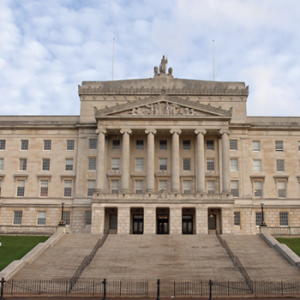 Brian Wilson, who voted against the budget, issued warnings as early as the draft budget in November 2007 and again in May 2008 that it would mean cuts in the National Health Service.
Brian Wilson, who voted against the budget, issued warnings as early as the draft budget in November 2007 and again in May 2008 that it would mean cuts in the National Health Service.
Green Party MLA Brian Wilson said: “When I voted against the budget I pointed out that the allocation to health, would inevitably lead to job cuts in the NHS. I was critical of the budget, particularly with its plans to achieve 3% efficiency savings. I said at the time, that for such savings to be achieved, thousands of job losses would be inevitable. I’m sorry to say that my warning is now proving to be the case.”
Assembly Member Wilson said: “Job cuts will not improve conditions for over worked doctors and nurses, nor will it help reduce waiting lists. Those of us who pointed out the impact of the budget on the health service were derided by the Assembly’s Executive for our opposition. However now we see the chickens coming home to roost.”
Extract from Mr. Wilson’s budget speech made in Assembly 27th November 2007
“As a former member of the EHSSB and as someone who has been involved in health for more than 20 years I am extremely concerned by the budget allocation to the NHS. An increase of 2.6% is the lowest I can recall and compares with the average of around 8% over the past five years…In fact the 2.6% is the equivalent to the freezing of the budget, when one considers the demographic pressures that Health Service inflation is higher than ordinary inflation.
A freeze compared to a 4% increase in real terms in England is unacceptable particularly when one considers that our waiting lists, trolley waits and other problems are at present significantly greater than those in England.
The differential in health expenditure between Northern Ireland and England has reduced significantly in recent years in expenditure per head. A recent study has shown that taking account of the age profile and deprivation levels that the Health Service in Northern Ireland requires 10% more resources per head than England due to its higher levels of need. The present differential is around 4% and of the proposals for 2008/09 would in fact erode the differential completely.
The Department proposes new programmes to reduce the present suicide rate, promote healthier ways of living, halt the rise in obesity, implement the long delayed Bamford Report and reduce MRSA infections. However the budget does not provide the new resources required for any of these programs. It is suggested that these will be met from 3% efficiency savings over each of the next three years. This is unrealistic. I recall as a member of the Eastern Health Board the great difficulty we had in achieving even 1% efficiency savings.
There are clearly efficiencies to be made in the organization of the NHS but these cannot be done in the proposed time scale. The NHS is a massive organization and like an oil tanker changing course it will take time. Restructuring will almost certainly require legislation which will take some years. To achieve the 3% efficiency savings in the NHS, given its labour intensive nature, will require at least a thousand job losses.”
